Quyosh kabeli
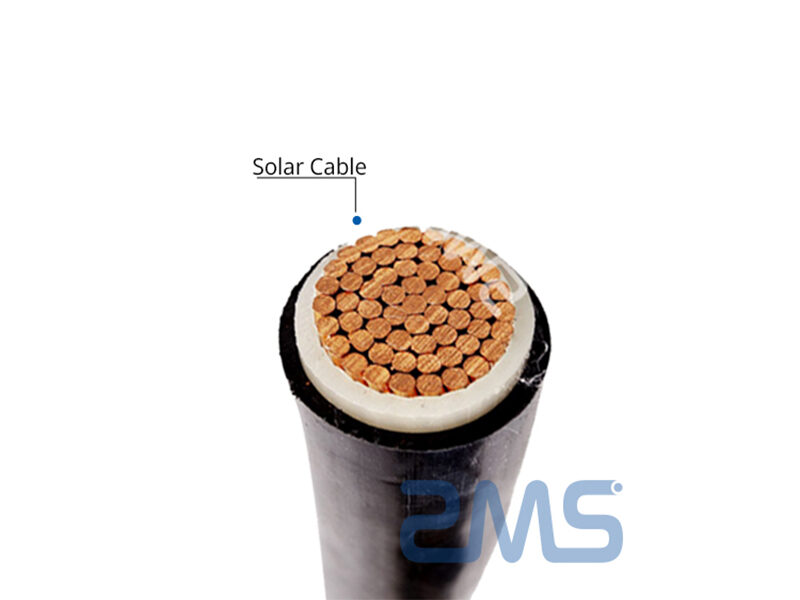
The cumulative sales volume of PV cables produced by ZMS Cable Supplier is huge. There are customers in many countries and regions.
ZMS Cable Supplier has always been adhering to the concept of integrity management and service-oriented. This is also the fundamental reason why the company has been able to stand in the cable industry for decades. No matter which national standard photovoltaic cable, we can produce it. The quality of our cables is also very good, all with inspection certificates.
Definition of Solar Cable
Physical and Chemical Properties of Solar Cables
First, high-temperature resistance. And strong compressive ability at high temperature. It can work at a high temperature of about 140 degrees, and the working time can last for 240 minutes
Secondly, strong corrosion resistance. During the experiment, it was found that the change in tensile strength before and after immersion in the chemical solution was within 30%, and the change in elongation at break was also within 30%.
Thirdly, good compatibility. After the aging test of the cable, it is found that the tensile strength and elongation at break of the insulation before and after aging do not exceed 30%. The tensile strength and elongation at break of the sheath before and after aging are not more than 30%
Fourth, good radiation resistance.
Electrical Properties of Solar Cables
First of all, when the cable is at 20℃, its insulation resistance is not less than 1014Ω·cm. Its insulation resistance is not less than 1011Ω·cm at 90°C.
Secondly, the DC resistance of the DC photovoltaic cable through the conductive core should not be greater than 5.09Ω/KM at a temperature of 20°C.
Thirdly, after the immersion voltage test with AC current of 1KV, there is no breakdown phenomenon.
Solar Cable Technology Analysis
The main technology used in photovoltaic cables is solar technology. Solar energy technology is the top priority of future green energy technology.
Although solar energy technology has not been widely used in the world, research on solar energy technology has already been extensively carried out.
At present, the most mature use of solar energy technology is in European countries.
The Difference Between Solar Cable and Ordinary Cable
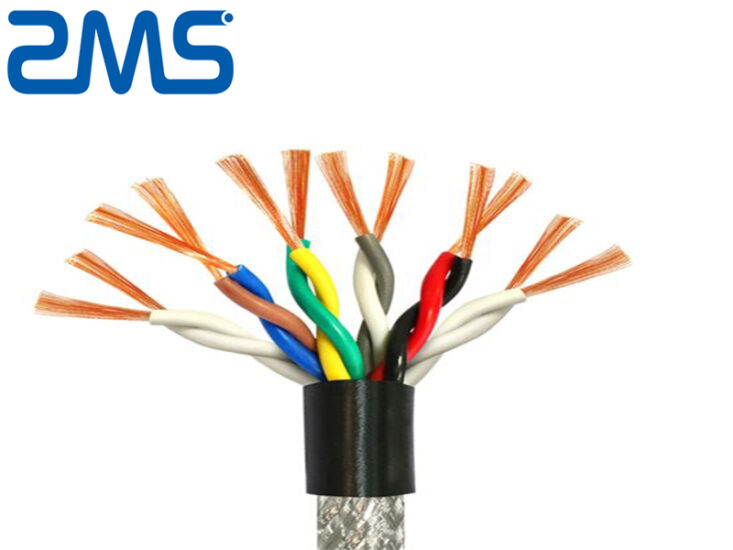
The core of photovoltaic cables is the transmission of electricity through solar technology, while ordinary cables only transmit electricity or information. Photovoltaic cables are more environmentally friendly and meet the requirements of green development and new energy development.
Ordinary cables can only be laid in ordinary environments, while photovoltaic power cables can be laid in harsh climatic environments and have a service life of more than 25 years.
The Relationship Between Environmental Stress and Solar Cables
Environmental stress is one of the important reasons that affect the quality of photovoltaic cables. Solar cable materials used outdoors should determine according to external factors such as chemical corrosion, ultraviolet rays, ozone, and severe temperature. The maintenance cost of photovoltaic cables is high. If you use low-grade materials. They cannot cope with the hazards caused by environmental stress. It is easy to break the cable sheath and even decompose the cable insulation. In the long run, these hazards need to pay attention to. Otherwise, it will cause unpredictable heavy losses. It is also because the maintenance cost of solar cables is high. So, when manufacturing photovoltaic cables, their materials are quite good. Masalan, its service life is 8 times that of rubber cables and 32 times that of PVC cables. Its weather resistance, UV resistance, and ozone resistance are quite good. The temperature range that can be withstood is also greater.
In addition to these properties, the photovoltaic cable also uses a double-layer insulation structure, which is to make the photovoltaic cable work more durable at high temperatures.
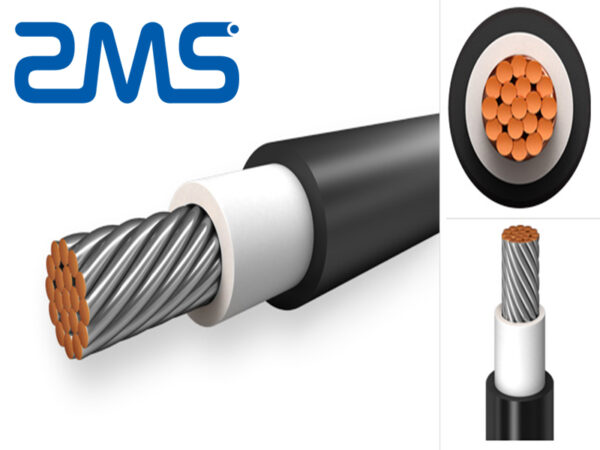
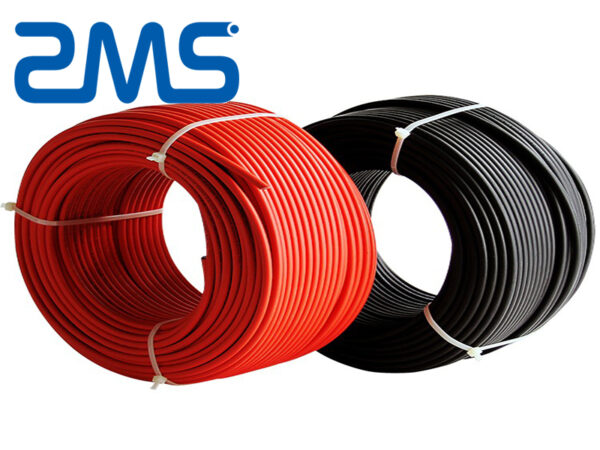
The Scope of Application of Solar Cables
Summary of Photovoltaic Cable Characteristics
First, the bending radius of the cable is not less than 4 times the outer diameter of the cable.
Secondly, the insulation and sheath are made of cross-linked polyolefin material.
Thirdly, the evaluation result of the thermal life of the cable shall meet the requirement that the service life of the cable is not less than 25 years.
Fourth, the finished cable is halogen-free and flame-retardant, and its performance complies with 2PfG 1169/08.2007.
Fifth, the finished cable not only has excellent wind and rain resistance, UV resistance and ozone resistance, but also can withstand a wider range of temperature changes (masalan: from -40ºC to +120ºC).
Sixth, the cable has excellent penetration resistance, and its performance complies with 2PfG 1169/08.2007.
About ZMS Cable
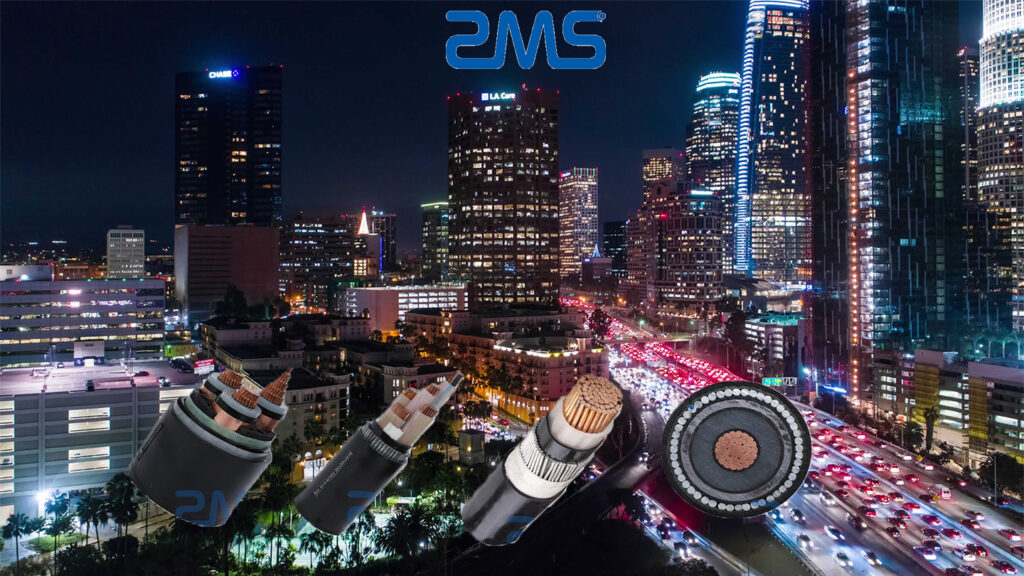
ZMS cable company can provide various types of cables. No matter which country you are in. And I can provide you with a cable that meets your national standards with an inspection certificate.
The factory of ZMS cable company adopts the most advanced production technology. In the long run, this reduces our manufacturing cost. So we have a price advantage. We are also in a leading position in the industry in terms of transportation speed. Looking forward to your inquiry.


